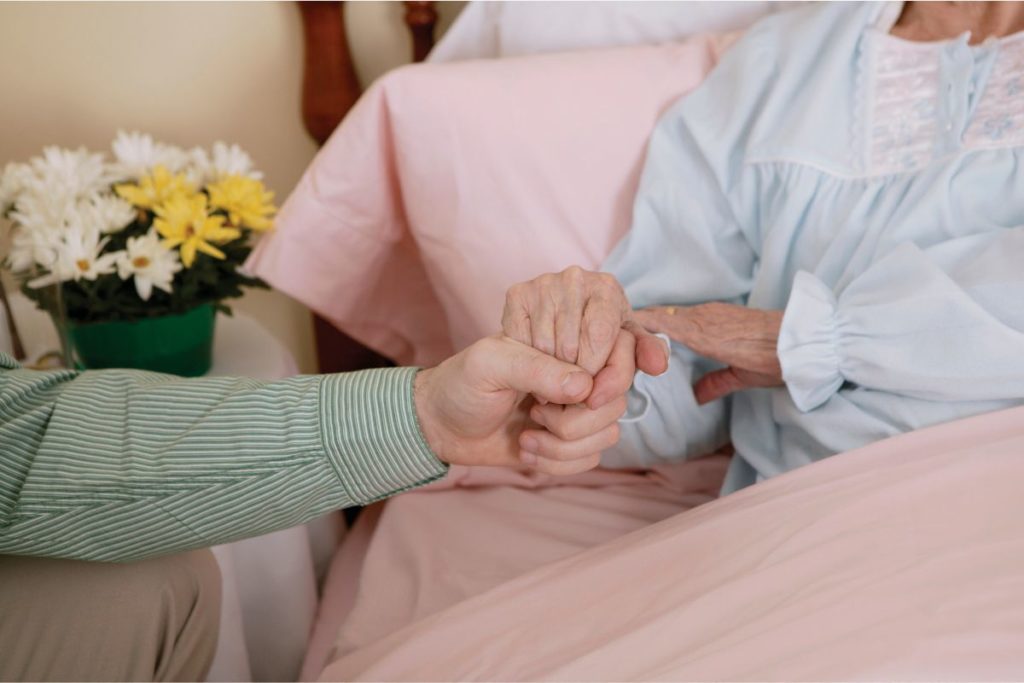Home » Cases We Win » Bed Sores
Bed Sores
Bed sores can occur in debilitated or bed-confined patients

BED SORES IN NURSING HOMES
Table of Contents
There are many cases in nursing homes in which residents are confined to their bed. This may be due to injuries, sickness or general lack of strength that can make even the most simple task rather arduous. Individuals who are stuck in bed can suffer from the unique ailment known as bed sores.
WHAT ARE BED SORES?
Bed sores are also called decubitus ulcers. They can occur in debilitated or bed-confined patients. Such patients often have difficulty turning themselves in bed to relieve pressure. Unrelieved pressure can cause reduced blood flow to an area. Friction from improper or careless turning can also contribute. When the pressure goes unrelieved and reduces blood flow then the skin can start to break down. Bed sores are described on a severity scale of I to IV. Stage I wounds only involve the outer level of the skin. Stage IV wounds are so severe that the underlying muscle or bone is exposed. Bed sores are often a sign of nursing home and abuse due to inadequate attention, infrequent turning or position changes and inadequate staffing levels.
RESPONDING TO BED SORES
In a well-managed nursing home, bed sores are prevented by moving residents to shift their weight. This should be done periodically throughout the day to ensure that pressure is relieved on individual parts of the body. Some facilities may also have special devices to create vibrations under the mattress to alleviate some pressure and mitigate the need for turning to relieve pressure.
When bed sores are discovered, they are often times outside of the expertise of those working in the home. Reducing pressure on the sores should be the first priority. If immediate first aid is needed for an open wound that will immediately follow the relief of pressure. Under all circumstances, medical professionals should be contacted. A doctor can better determine the severity of the injury. In addition to looking at the wound, questions such as how long pain has been present, frequency of movement, and even hydration and nutrition can be asked and assessed.
NEGLIGENCE IN NURSING HOMES
There are a variety of factors that your attorney will look for in showing that there has been neglect in the nursing home. Factors such as documentation standards, staffing, cleanliness and preventative measures that are visible.
Combatting negligence is a hands-on activity that requires checking records, speaking with the patient and physically showing up when possible. Actions such as these not only show that you are present and able to notice downturns in health and care but also allow you to know the staff and how they interact with your loved one.
DAMAGES AND COMPENSATION YOU CAN RECOVER
Serious injuries can and do occur in instances of bed sores. You or your loved one may need extensive medical care or even long-term care in the recovery effort. Fortunately, it is possible to recover some of those losses, including:
- Medical expenses, including emergency care and ongoing treatments
- Long term disability
- Pain and suffering, including emotional injuries
- Diminished quality of life
To determine what damages can be recovered, your Nursing Home Attorney will look at the entirety of the claim. In addition to what happened to your loved one, they may also look through any available history to see if there is a pattern of these issues that may shed light on policies and procedures. All of this combined will help to set a course through what can be a very trying time for you and your family.
Need to Report Bed Sores
The conditions discussed above are all possible indicators of nursing home abuse and neglect. If your loved one has suffered one or more of these conditions, please consider speaking with one of our experienced nursing home abuse and neglect attorneys.
State and federal law requires that nursing home residents undergo periodic assessments of their health conditions and specific needs. These assessments then lead to the creation of a unique plan of care for the resident. The care plan is then implemented for the resident. In order for this process to work effectively, the initial assessment must be thorough and accurate. The care plan then needs to be created and followed diligently.
Unfortunately, resident assessments and care plans are not always created and implemented properly. This can cause situations where the resident is not cared for properly or one of the resident’s physical limitations is completely overlooked. Situations of understaffing or poorly trained care providers often contribute to the problem.
Sometimes the most important part of nursing home care is that very simple things be done for the resident on a careful and consistent basis and then accurately documented. This allows for the creation of a record than can be analyzed and assessed for trends and changes in condition. What is the resident’s weight? How much has the resident been eating and drinking? Are the resident’s vital signs stable? Have there been any reactions to medications? Has the resident been engaged in activities? Has the resident’s skin been assessed? If the resident is a risk for falling, have the fall precautions been followed? Should the doctor be called? Have the laboratory results been reviewed? These questions point out how a resident’s care providers must be on the careful lookout for subtle changes in a resident’s condition. The failure to identify, document and report changes can be harmful and even deadly for the resident.
Tips by Case Type
Get a FREE Case Review
"*" indicates required fields
Are You Entitled to Compensation?
If you or a loved one have been the victim of nursing home abuse or neglect, you may be eligible for financial compensation.
